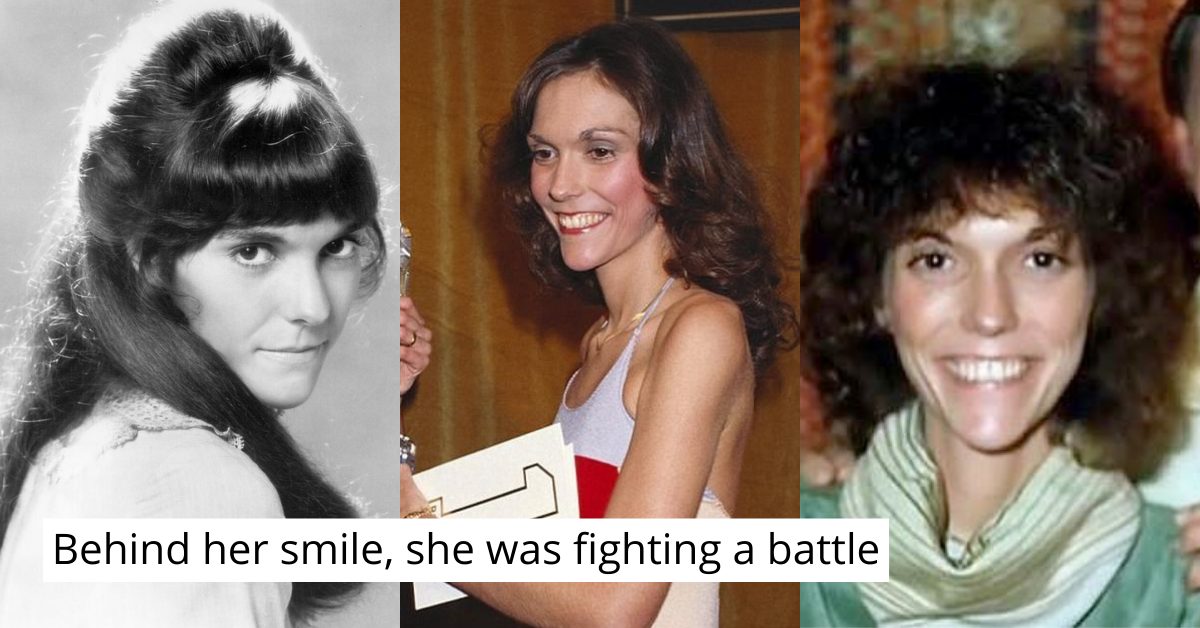
Karen Carpenter‘s name is forever etched in the hearts of millions as the voice behind some of the most cherished songs in pop history. As the lead vocalist of The Carpenters, her warm, distinct voice captured a purity and emotion that resonated deeply with listeners around the world. Hits like “Close to You,” “Superstar,” and “Rainy Days and Mondays” continue to evoke feelings of nostalgia and comfort. Yet, behind her captivating smile and the wholesome image of the Carpenters, there was a much darker, more complex story that few knew until it was too late.
Born in 1950, Karen grew up in a musical family, where her brother Richard’s exceptional musical talent complemented her own blossoming abilities. Together, they formed the foundation of what would become one of the most successful musical duos of the 1970s. However, as the world came to adore her soft, melancholic voice, Karen‘s personal life was slowly unraveling under the weight of the pressures that come with fame.
Beneath her public persona of poise and charm, Karen Carpenter struggled with a deep and growing sense of loneliness and insecurity. Despite the adoration she received for her singing, she often felt isolated, particularly in the face of the body image issues that began to take hold of her in the mid-1970s. At a time when society placed immense emphasis on physical appearance, Karen‘s struggles with anorexia became a tragic part of her story. It wasn’t just her weight that she tried to control—her emotional and personal life felt equally out of her grasp. With the media and public scrutinizing her every move, Karen internalized the pressure, leading her into a silent, agonizing battle with an eating disorder that would ultimately claim her life.
Despite her tragic struggle, Karen continued to perform, and her voice never faltered in its beauty. Her ability to mask the pain, the vulnerability behind each note, made her music even more poignant. But behind the smiles, there was a woman who longed for something deeper—acceptance, peace, and happiness that she could never fully find in the public eye.
In 1983, Karen Carpenter’s life was tragically cut short at the age of 32. Her passing left a void not only in the world of music but also in the hearts of all who had been touched by her vulnerability and artistry. The aftermath of her death led to a much-needed public awareness of anorexia and the cruel standards of beauty in the entertainment industry. Yet, even in the wake of her loss, her music continues to serve as a beautiful, bittersweet reminder of her incredible talent and the emotional depth that marked her brief but impactful life.
As we remember Karen Carpenter, we are reminded that behind the gleaming success and public adoration, there was a woman with dreams, struggles, and an overwhelming desire to be loved. May she find the peace and rest she so deserved in heaven, and may her legacy live on not just in the music she created, but in the awareness she helped bring to the struggles that so many face in silence.